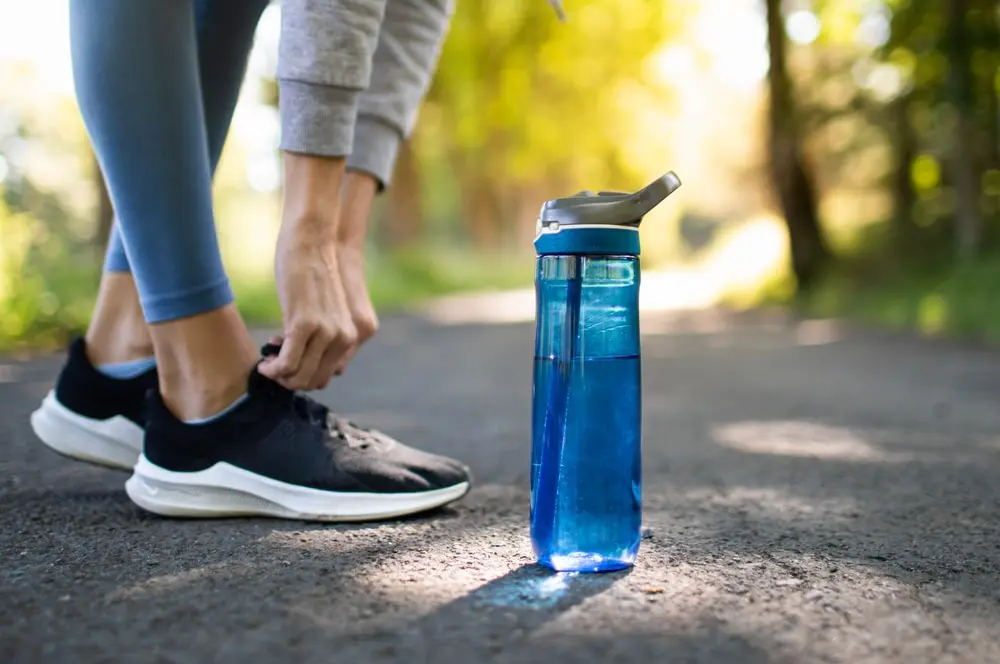In today’s fast-paced world, it’s no surprise that many of us rely on caffeine to power through the day. But while a cup of coffee or tea can offer a quick energy boost, relying too heavily on caffeine often leads to crashes, jitters, and even difficulty sleeping. If you’re looking for natural, sustainable ways to keep your energy levels up without caffeine, you’re in the right place.
Natural energy boosters offer a healthier, more balanced approach to staying alert and productive throughout the day. From simple lifestyle changes to dietary adjustments, these strategies can provide the steady, lasting energy we all crave—without the side effects of caffeine. Whether you’re aiming to reduce your coffee intake, or just looking for additional ways to feel more energized, the following tips will help you stay on top of your game with ease.
What The Experts Say
Before diving into practical steps for boosting energy, it’s helpful to understand the science behind what really drives our daily energy levels. According to Dr. Saundra Dalton-Smith, a researcher in rest and author of Sacred Rest, fatigue often stems not just from physical exhaustion but also from mental, emotional, and sensory overload. “We tend to treat all tiredness with physical rest,” she explains, “but often it’s the mental or emotional exhaustion that needs attention.” Dr. Dalton-Smith emphasizes that understanding what type of fatigue you’re experiencing can help in choosing the most effective way to feel energized again.
Dr. Andrew Huberman, a neuroscientist and professor at Stanford University, has also highlighted the role of natural light exposure in maintaining energy levels. “Natural sunlight in the morning signals to our brain’s internal clock that it’s time to be alert,” Huberman says. He explains that early sunlight exposure can help regulate our circadian rhythm, enhancing both energy during the day and restful sleep at night.
Similarly, Dr. Amy Shah, an integrative medicine physician and author of I’m So Effing Tired, points out the importance of nutrition in managing energy. Shah believes that by eating foods that support gut health, we can achieve a natural energy balance throughout the day. “Our gut is deeply connected to how we feel,” Shah notes. “When we feed it well, we’re more likely to feel focused, alert, and energized.”
These insights underline the importance of a holistic approach to energy, where mental, physical, and lifestyle factors all play a role. With these expert-backed ideas in mind, let’s explore some practical, caffeine-free ways to naturally boost energy.
1. Get Moving with Short Bursts of Exercise
Exercise is one of the best natural energy boosters available. While an intense workout may sound exhausting, short bursts of movement can actually enhance your energy levels. Even a 10-minute walk can increase blood flow, release endorphins, and improve your mood, helping you stay focused for hours. For a full breakdown of how exercise influences energy, this guide from Healthline explains the science behind it.
2. Stay Hydrated for Optimal Energy
One of the simplest natural energy boosters is to stay hydrated. Dehydration can lead to feelings of fatigue and lack of focus, making it harder to stay productive throughout the day. Drinking water consistently is a simple and effective way to maintain high energy levels. To ensure you’re getting enough, try setting reminders on your phone or keeping a water bottle nearby at all times. The National Institute on Aging provides helpful tips for staying hydrated, especially as energy needs change over time.

3. Opt for a Nutrient-Rich Diet
A balanced diet rich in whole foods, complex carbs, and lean protein is one of the best ways to fuel your body and mind. Foods like bananas, oats, nuts, and leafy greens are excellent natural energy boosters, offering a steady supply of nutrients. Complex carbohydrates found in whole grains provide a slow release of energy, while protein from lean meats or plant-based sources helps with muscle repair and sustained energy. These foods not only support physical energy but also contribute to better mental focus and concentration.
4. Embrace Power Naps
If you’re feeling sluggish, a short power nap can do wonders. Aim for a quick 10-20 minute nap during the day, ideally between 1 and 3 p.m. This is a natural energy booster that doesn’t interrupt your nighttime sleep schedule. A short nap can increase alertness, improve mood, and reduce stress, making it a highly effective strategy for recharging in a short amount of time.
5. Practice Deep Breathing
Deep breathing exercises can be a surprising energy booster. When we feel tired, our breathing becomes shallow, which reduces oxygen flow to the brain and muscles. Practicing deep, controlled breathing—like taking slow breaths in through your nose, holding for a few seconds, and then releasing slowly—helps you feel more alert and calm. Integrate these breathing techniques throughout your day, especially if you’re feeling low on energy.

6. Get Some Sunlight
Sunlight is one of the simplest natural energy boosters. Exposure to natural light helps regulate your body’s circadian rhythm, improving both energy levels and mood. Try to spend at least 15-30 minutes outside in the morning, or if you’re indoors, consider sitting near a window where natural light can reach you. Natural light therapy, according to Johns Hopkins Medicine, is especially helpful for boosting alertness during the day.
7. Prioritize Good Sleep
While it might sound obvious, good-quality sleep is the foundation of sustainable energy. To get the most out of your rest, aim for 7-9 hours each night, avoid screens before bed, and establish a relaxing pre-sleep routine. Good sleep hygiene ensures your energy levels remain stable throughout the day, reducing the need for caffeine as an energy crutch.
8. Use Essential Oils
Certain essential oils, like peppermint and rosemary, have been linked to increased alertness and focus. Try diffusing these oils in your workspace or apply a diluted drop to your wrists for an instant pick-me-up. These natural scents can provide a subtle but effective boost to your energy and mental clarity.
9. Try Adaptogenic Herbs
Adaptogens like ashwagandha, rhodiola, and ginseng have been used for centuries to help the body adapt to stress and maintain energy levels. These herbs work by supporting adrenal health, which plays a vital role in energy regulation. Adding adaptogens to your daily routine—whether as a tea, supplement, or in smoothie form—can provide a gentle, natural boost to your energy levels over time. According to WebMD, adaptogens can improve resilience to stress, which may help reduce fatigue and enhance overall vitality.
Finding natural energy boosters that work for you can enhance productivity, focus, and overall well-being. By incorporating these caffeine-free energy tips into your daily routine, you can stay energized naturally and enjoy a healthier, more balanced lifestyle. Don’t stretch yourself by making big chances, but keep them small and acceptable. Whether it’s through exercise, a nutrient-rich diet, or good hydration, there are plenty of sustainable ways to feel great throughout the day without relying on caffeine.

